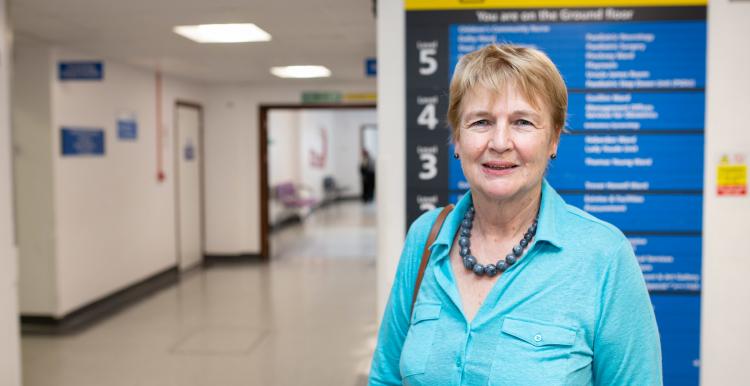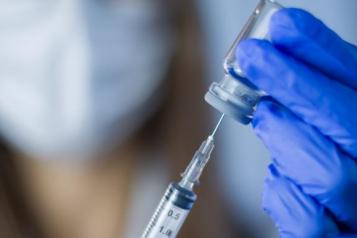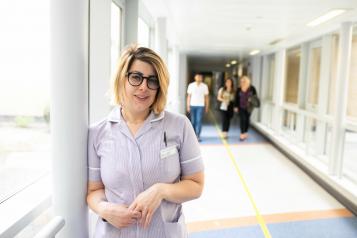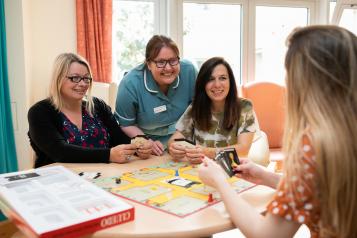COVID-19 vaccination

Last updated 13 April 2022
Who can get a vaccine?
Anyone aged 5 and over can get a 1st and 2nd dose of a COVID-19 vaccine. Anyone aged 16 or over can get a booster vaccine, as well as some children aged 12 to 15. See below for more information on booster shots.
Anyone aged 12 or over with a weakened immune system can get a 4th dose. This group, as well as over 75 year olds and care home residents, will get a Spring booster.
If you are aged 16 or over
All those aged 16 or over can book their vaccination through the NHS booking service. You can also call 119 free of charge, anytime between 7am and 11pm seven days a week.
You can also find a walk-in COVID-19 vaccination site to get vaccinated without needing an appointment. Or you can wait to be contacted by your GP and book your appointment with them.
Children aged 5 to 15
All children aged 5 to 15 will be offered the COVID-19 vaccine. Children can get a first dose of the vaccine from the day they turn 5, and a second dose 12 weeks after the first.
Appointments can be booked online or you can find a walk in vaccination site to get a vaccine without needing an appointment.
Children will be offered the Pfizer/BioNTech vaccine. Most vaccinations will be delivered through a school-based vaccination programme, the same as for HPV and Diphtheria, Tetanus and Polio.
If you receive home schooling, are in secure services, or specialist mental health settings, then provision will be put in place to ensure you are still offered one dose of the vaccine.
Parental, guardian or carer consent will be sought before vaccinations are given in line with existing school vaccination programme policies.
Booking your vaccination
- All those aged 16 plus can book their coronavirus vaccine via the national booking service or dialling 119.
- If you have difficulties communicating or hearing, or are a British Sign Language (BSL) user, you can use textphone 18001 119 or the NHS 119 BSL interpreter service.
- If you’re eligible for a booster dose and it has been 3 months since you had your 2nd dose, you can also book using the national booking service.
- You can get your booster at a walk-in vaccination clinic. Find Trafford walk-in clinics here.
- Most children can get their COVID-19 vaccine at school or can book their COVID-19 vaccination appointment online.
- More information about the vaccine is available via the NHS.
- The COVID-19 vaccine is only offered by the NHS and will always be free.
- For information on getting to and from your vaccination appointment, see here.
- Be aware of vaccine scams: the NHS will never ask for your banking information or PIN, and will always offer the vaccine at no cost. They will also never arrive unannounced to deliver the vaccine.
Which vaccine will I get?
Three coronavirus vaccines are currently available in the UK:
Pfizer and Moderna are available as booster doses. These have been deemed safe and effective after strict testing and safety checks. They are approved for use by the Medicines and Healthcare products Regulatory Agency (MHRA).
Both vaccines offer a good level of protection three or four weeks after the first dose, however it is important to have the two doses for longer-term protection. The Janssen Vaccine will be available at a later date.
How does the vaccine work?
The vaccine does not contain the COVID-19 virus so you cannot develop an illness from it.
The vaccine works by teaching your body to recognise the spike proteins on the surface of the COVID-19 virus, so that if you are infected your immune system is already prepared to respond and fight off the virus.
The vaccine does this by using messenger RNA (mRNA) to tell the body to produce the protein, which ‘tricks’ the immune system into producing antibodies and T-cells.
What is mRNA?
mRNA is a molecule which carries instructions for making proteins. It stands for messenger ribonucliec acid.
What is a T-cell?
A T-cell is a type of white blood cell that destroys infection in the body. It is produced in bone marrow.
What is an antibody?
An antibody is a kind of protien that recognises foreign substances in the body and removes them.
Side effects
Please tell a member of staff if you have ever had an allergic reaction. Serious reactions to the COVID vaccine are rare and site staff are trained to treat them immediately.
No long-term complications from the vaccine have been reported. You may experience some side effects from the vaccination, but these are usually minor and do not affect everyone. They generally do not last long, and can include the following:
- Headache
- Sore arm at the injection site
- Feeling tired
- Aches
- Nausea
The MHRA is carrying out a detailed review of reports of an extremely rare blood clotting problem affecting a small number of people who have had the Oxford/AstraZeneca vaccine.
The vaccine can help stop you getting seriously ill or dying from COVID-19.
For people aged 40 plus and those with other health conditions, the benefits of being vaccinated with the Oxford/AstraZeneca vaccine outweigh any risk of clotting problems.
For people under 40 without other health conditions, it’s currently advised that it’s better to have another COVID-19 vaccine instead.
Call 111 immediately if you get any of these symptoms starting from around 4 days to 4 weeks after being vaccinated:
- a severe headache that is not relieved with painkillers or is getting worse
- a headache that feels worse when you lie down or bend over
- a headache that’s unusual for you and occurs with blurred vision, feeling or being sick, problems speaking, weakness, drowsiness or seizures (fits)
- a rash that looks like small bruises or bleeding under the skin
- shortness of breath, chest pain, leg swelling or persistent abdominal (tummy) pain
After your appointment
After you have had the vaccine, you should still continue to follow social distancing guidelines, wear a mask and regularly wash your hands. You can still spread the virus despite being vaccinated.
Further information
- Please see the NHS website for further information on the vaccine and health conditions.
- For information about vaccination and allergies, visit anaphylaxis.org.uk.
- Information on what happens at your vaccination appointment.
- If you think you have been a victim of fraud, please contact Action Fraud on 0300 123 2040


